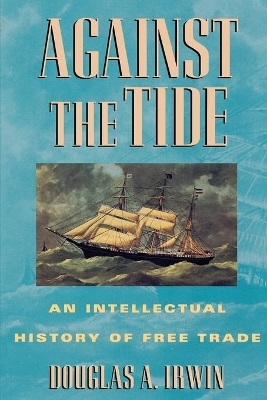
Against the Tide
Princeton University Press (Verlag)
978-0-691-05896-2 (ISBN)
About two hundred years ago, largely as a result of Adam Smith's Wealth of Nations, free trade achieved an intellectual status unrivaled by any other doctrine in the field of economics. What accounts for the success of free trade against then prevailing mercantilist doctrines? And how well has free trade withstood various theoretical attacks that have challenged it since Adam Smith's time? In this readable intellectual history, Douglas Irwin explains how the idea of free trade has endured against the tide of the abundant criticisms that have been leveled against it from the ancient world and Adam Smith's day to the present. An accessible, nontechnical look at one of the most important concepts in the field of economics, Against the Tide will allow the reader to put the ever new guises of protectionist thinking into the context of the past and discover why the idea of free trade has so successfully prevailed over time. Irwin traces the origins of the free trade doctrine from premercantilist times up to Adam Smith and the classical economists.
In lucid and careful terms he shows how Smith's compelling arguments in favor of free trade overthrew mercantilist views that domestic industries should be protected from import competition. Once a presumption about the economic benefits of free trade was established, various objections to free trade arose in the form of major arguments for protectionism, such as those relating to the terms of trade, infant industries, increasing returns, wage distortions, income distribution, unemployment, and strategic trade policy. Discussing the contentious historical controversies surrounding each of these arguments, Irwin reveals the serious analytical and practical weaknesses of each, and in the process shows why free trade remains among the most durable and robust propositions that economics has to offer for the conduct of economic policy.
Douglas A. Irwin is Professor of Economics at Dartmouth College. He is the editor of Jacob Viner: Essays on the Intellectual History of Economics (Princeton).
List of IllustrationsAcknowledgmentsIntroduction3Ch. 1Early Foreign Trade Doctrines11Ch. 2The English Mercantilist Literature26Ch. 3The Emergence of Free Trade Thought45Ch. 4Physiocracy and Moral Philosophy64Ch. 5Adam Smith's Case for Free Trade75Ch. 6Free Trade in Classical Economics87Ch. 7Torrens and the Terms of Trade Argument101Ch. 8Mill and the Infant Industry Argument116Ch. 9Graham and the Increasing Returns Argument138Ch. 10Manoilescu and the Wage Differential Argument153Ch. 11The Australian Case for Protection172Ch. 12The Welfare Economics of Free Trade180Ch. 13Keynes and the Macroeconomics of Protection189Ch. 14Strategic Trade Policy207Conclusion: The Past and Future of Free Trade217References231Index253
| Erscheint lt. Verlag | 11.1.1998 |
|---|---|
| Zusatzinfo | 14 halftones |
| Verlagsort | New Jersey |
| Sprache | englisch |
| Maße | 152 x 235 mm |
| Gewicht | 397 g |
| Themenwelt | Geschichte ► Teilgebiete der Geschichte ► Wirtschaftsgeschichte |
| Wirtschaft ► Volkswirtschaftslehre ► Makroökonomie | |
| ISBN-10 | 0-691-05896-2 / 0691058962 |
| ISBN-13 | 978-0-691-05896-2 / 9780691058962 |
| Zustand | Neuware |
| Haben Sie eine Frage zum Produkt? |
aus dem Bereich


